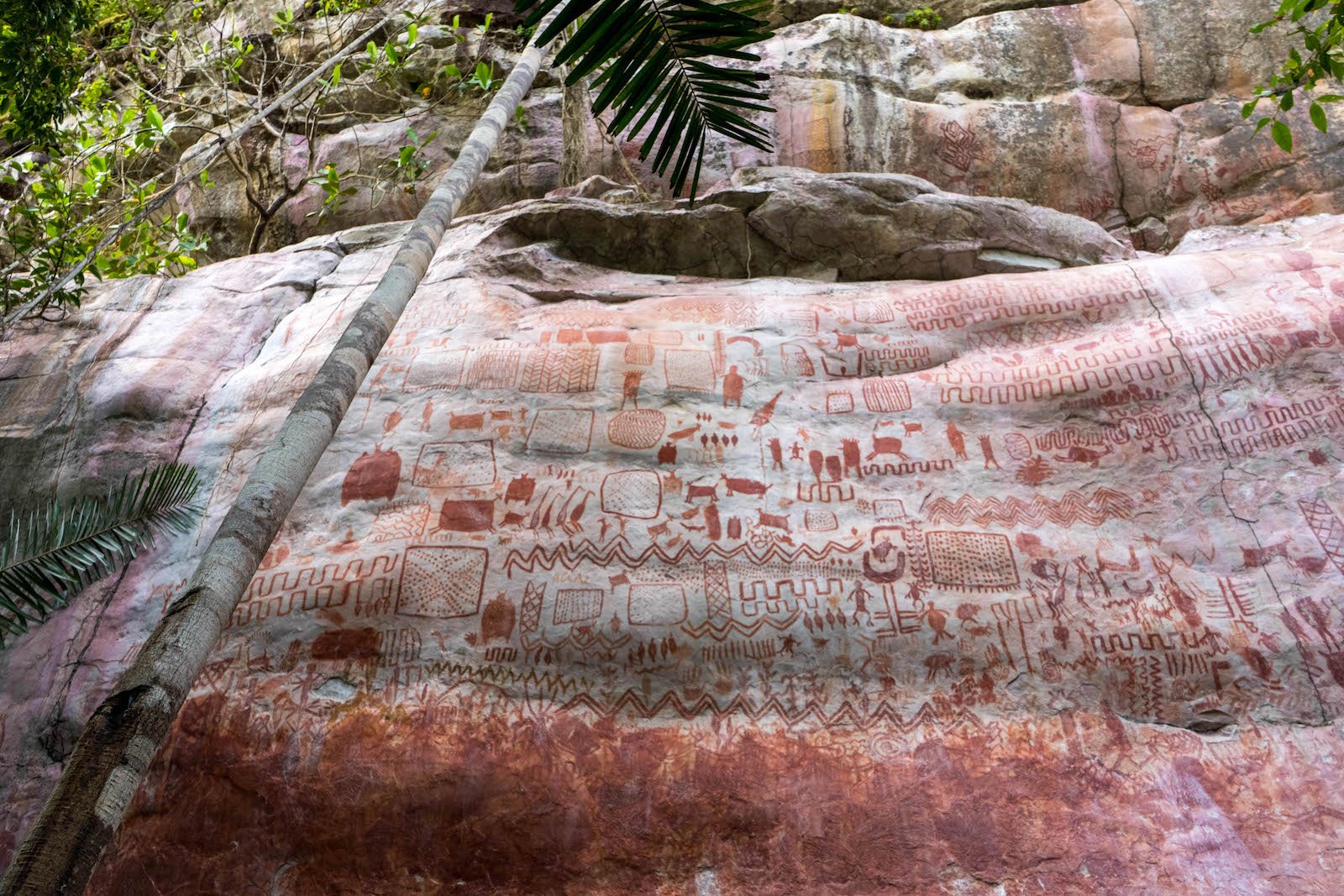
In a discovery that will take generations to fully unpack, archaeologists have uncovered tens of thousands of Ice Age paintings of wild animals and humans on a series of rock faces in the Amazon. The territory of Serranía La Lindosa, in Colombia, was opened up to exploration after a 2016 peace treaty between rebel fighters and the government.
The researchers carried out the excavations in 2017 and 2018 but kept them under wraps until now, when they will be revealed in the documentary Jungle Mystery: Lost Kingdoms of the Amazon. The first episode of the new series airs on England’s Channel 4 on December 5.
“What really impressed me was two things,” José Iriarte, a researcher from the University of Exeter, told Artnet News. “First, the realism of the pictures. Because of how realistic they are, we are able to say, for example, that they were painting Ice Age megafauna.”
Secondly, “there’s the diversity of the paintings,” he said. “From aquatic environments you have fish, turtles, anacondas, boas. But you also have birds, like eagles and king vulture. Then, of the terrestrial animals, monkeys, deer, giant sloth, and horses.” There is also abstract imagery as well as depictions of finely drawn figures, including a dancer in mid-turn.
Palaeo-anthropologist Ella Al-Shamahi compares her hand to a handprint created around 12,000 years ago at Cerro Azul in Guaviare state, Columbia. Photo by Marie-Claire Thomas, courtesy Wild Blue Media.
The artists who created the images were very exacting in their materials as well as the siting of the paintings and the preparation of the surfaces, Iriarte said. For one thing, the walls they chose were sheltered from rain, indicating that the artists had a mind to the paintings’ preservation. They also chose fine-grained rock faces, Iriarte said, in order to have “a very smooth canvas.”
The team had only recently begun exploring the area when they noticed the walls via satellite imagery. Knowing that rock art had been discovered nearby, they suspected that the walls might bear more. Since the area is still under the control of rebel dissidents who have not signed on to the peace agreement with the government, the team had to gain their permission to study the walls, which are a five-hour trek through the woods
“You can see things like this for 100 years on TV,” Iriarte said. “When you’re there, I won’t say you cry but… you become emotional.”